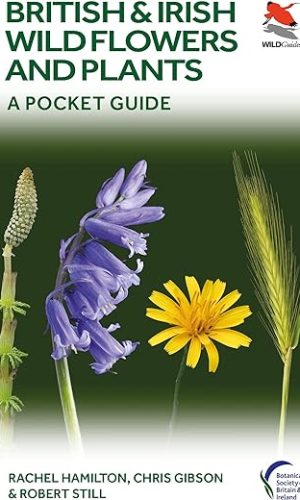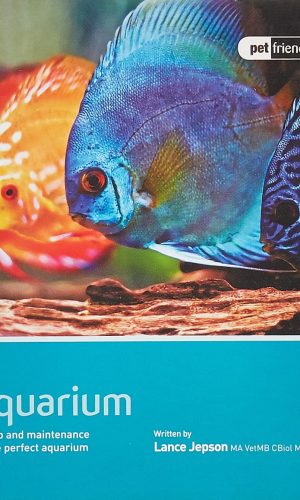Losing Eden: Why Our Minds Need the Wild
£9.20£10.40 (-12%)
A TIMES AND TELEGRAPH BOOK OF THE YEAR
‘Beautifully written, movingly told and meticulously researched … a convincing plea for a wilder, richer world’ Isabella Tree, author of Wilding
‘By the time I’d read the first chapter, I’d resolved to take my son into the woods every afternoon over winter. By the time I’d read the sixth, I was wanting to break prisoners out of cells and onto the mossy moors. Losing Eden rigorously and convincingly tells of the value of the natural universe to our human hearts’ Amy Liptrot, author of The Outrun
Today many of us live indoor lives, disconnected from the natural world as never before. And yet nature remains deeply ingrained in our language, culture and consciousness. For centuries, we have acted on an intuitive sense that we need communion with the wild to feel well. Now, in the moment of our great migration away from the rest of nature, more and more scientific evidence is emerging to confirm its place at the heart of our psychological wellbeing. So what happens, asks acclaimed journalist Lucy Jones, as we lose our bond with the natural world-might we also be losing part of ourselves?
Delicately observed and rigorously researched, Losing Eden is an enthralling journey through this new research, exploring how and why connecting with the living world can so drastically affect our health. Travelling from forest schools in East London to the Svalbard Global Seed Vault via primeval woodlands, Californian laboratories and ecotherapists’ couches, Jones takes us to the cutting edge of human biology, neuroscience and psychology, and discovers new ways of understanding our increasingly dysfunctional relationship with the earth.
Urgent and uplifting, Losing Eden is a rallying cry for a wilder way of life – for finding asylum in the soil and joy in the trees – which might just help us to save the living planet, as well as ourselves.
Read more
Additional information
| Publisher | Penguin (25 Feb. 2021) |
|---|---|
| Language | English |
| Paperback | 272 pages |
| ISBN-10 | 0141992611 |
| ISBN-13 | 978-0141992617 |
| Dimensions | 12.9 x 1.5 x 19.8 cm |










by Zoe
Excellent, should be everyone’s lockdown read! Quite possibly the most important book you’ll read this year. A really inspiring account of the importance of the natural environment in every single aspect of human health. Comprehensive and illuminating. Highly recommend.
by ehb
I enjoyed reading this book – well written, with a tone of humility and hope – it opens up a rich tapestry of the wealth of research – both academic and practical – already conducted into how we need nature for a healthy mind. The author has gathered together so much, from varied sources and places, some of which I knew of, some of which I didn’t.
If I had any criticism it’s that, as a journalist, she is perhaps not able to critique some of this evidence, and assess whether it is robust or not. She did reference everything though so it is possible to look it up and make your own judgement. Sometimes, she simply accepts the practitioner’s view that ‘it works’ without making any judgment herself. I do very much want to believe the hypothesis, but I am cautious about simply accepting her write up as proof.
by Stacey Marston
Just finished this fantastic book and felt compelled to review and recommend it. I read it during lockdown and it seemed so timely to me. I hope if something good can come out of lockdown it is a reconnection with nature, that I hope I’m not alone in finding. The Earth, insects, birds and trees seemed to respond to the quiet and reduction of cars on the road with a resurgence that helped somehow, a small silver lining… As things start to lift and people get back into their cars and back to work, I really hope that the reminder is not short-lived. The book has so much research about why we need nature and how beneficial it is to our physical and mental health, but I also loved the author’s personal reflections on the research and the descriptions of the natural environments she remembered as a child or explored as an adult.
Powerful and persuasive, it will make you want to ‘do something’!
by PavelR
A great summary of what nature can do for us, especially in terms of improving our mental health. The book is based on the latest science but put into plain English so that it is accessible to everyone. I guess we all know that spending time in nature is relaxing and good for us but I was surprised by the level of understanding that the new science is beginning to unravel. There are chemicals given off by trees that are thought to be good for our immune system and may even help reduce the chances of developing serious illness such as cancer. This is vital stuff, things that everyone should be aware of. I’d recommend this to anyone whether or not you have an existing interest in nature and wildlife.
by Anthony Voelcker
This book is an absolute treasure; is balances beautiful, honest and heartfelt prose with thoroughly detailed research and creates a very compelling picture of why and how ‘nature’ can benefit our mental health. As informative as it is moving, sinking into this book has been the perfect antidote to lockdown and has inspired many a walk since, offering new perspective on the world around us. This is an important, humane and relatable book. I can’t recommend it highly enough.
by Shane Richmond
Is our modern-day estrangement from the natural world bad for our mental health? That’s the question Lucy Jones explores in Losing Eden and, in doing so, visits forest schools, ancient woodlands and a seed vault in Scandinavia’s frozen north. Lucy is a friend, so I’ve known about this book for a couple of years and, as someone with a fascination for neuroscience, I was curious to see how much evidence she could assemble to show a link between mental health and nature. The answer is, a lot.
The book is packed with scientific studies stretching back decades that show our connection to the natural world. Hospital patients with a view of trees recover more quickly than those who look out on a brick wall, for example, while in poor neighbourhoods, buildings with greener surroundings experience less crime. Many of the studies are small but compelling when taken together. They paint a picture of our need for the natural world, just as we are becoming more isolated from it.
Lucy balances this research with her own experiences and love of nature so that the science never feels overwhelming. It’s a timely book for many reasons and one that gave me a lot to think about.
by Renny Gye
This is a challenging and fascinating study of how our mental health can be improved or damaged depending on our contact with nature. The author draws on a wide variety of research, which makes it somewhat scholarly. However, for the casual reader, that can be a a bit repetitive. Also, she is a woman on a mission so her analysis lacks much consideration of the reasons why living in cities is so desirable to so many people. Despite this, it’s definitely worth reading.
by SPfromUK
This book is more like collection of the information and data from different sources.
It was interesting read for almost Half the length of the book but after that it felt like reading a text book and I forced myself to finish it.